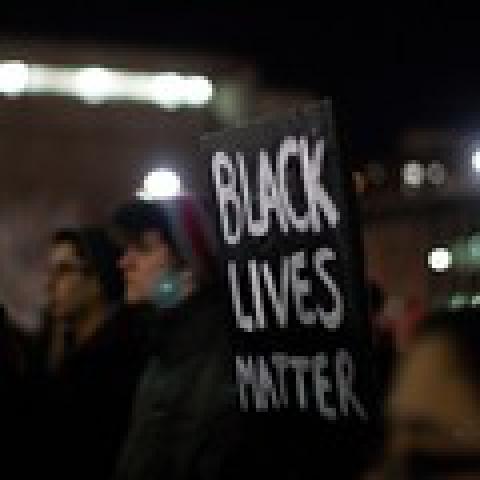695BGK
by Phoebe Judge & Lauren Spohrer (Criminal, 2015)
Just before 2am on December 31, 2008, police officer John Edwards was patrolling in Bellaire, Texas when he saw an SUV driven by two young African-American men. Edwards followed the SUV and ran the license plate number. His computer indicated that the SUV was stolen, and Edwards drew his gun and told the two men to get down on the ground. By the time Edwards realized he had made a mistake, one of the men had already been shot.
[moderator: There may be license issues with the rebroadcast of the Strange Fruit segment and the segment may not be available on the Third Coast Festival site as broadcast on WBEZ but can be found here on the BBC site.
Strange Fruit
Soul Music,Series 17 Episode 1 of 5
"Southern trees bear a strange fruit, blood on the leaves and blood at the root..." Billie Holiday's famous song expresses the horror and anguish of those communities subjected to a campaign oflynching in the American South. Soul Music hears the stories of people whose relatives were lynched by white racists and of the various forms of grief, anger and reconciliation that have followed. These include the cousin of teenager Emmett Till, whose killing in 1955 for whistling at a white woman, added powerful impetus to the civil rights movement.
Despite its association with the deep south, the song was actually composed in 1930's New York by a Jewish schoolteacher, Abel Meeropol. Meeropol adopted the children of Julius and Ethel Rosenberg after they were executed in 1953 as Soviet spies. One of those children, Robert, talks of his adopted father's humanity and his belief that the Rosenberg's were killed in a 'state sanctioned lynching by the American government'. For him, Strange Fruit is a comforting reminder of his adopted father's passionate belief in justice and compassion.
Producer: Maggie Ayre.]
Strange Fruit
by Maggie Ayre (Soul Music, BBC Radio 4, 2014)
Billie Holiday's famous song 'Strange Fruit' expresses the horror and anguish of a community subjected to lynching in the American South. In this programe, we hear the stories of people whose relatives were lynched by white racists and of the various forms of grief, anger and reconciliation that have followed. And learn the roots of the song itself.
We've Forgotten James Powell
by Nate DiMeo (The Memory Palace, 2014)
Nate Dimeo looks back to the summer of 1964. It's late afternoon in New York City: a group of kids hangs out on a stoop after a day of summer school, just kicking it, like they always do.
Alex Landau and Patsy Hathaway
by Jud Etsy Kendall (StoryCorp, 2014)
Alex Landau, an African American who was adopted by a white couple, grew up in a largely white, middle-class suburb of Denver, Colorado. After a traffic stop one night, Alex was severely beaten by Denver Police officers. He and his mother, Patsy Hathaway, visited StoryCorps to talk about how Alex’s race has influenced his life and what happened that night the police stopped him.


Spread the word